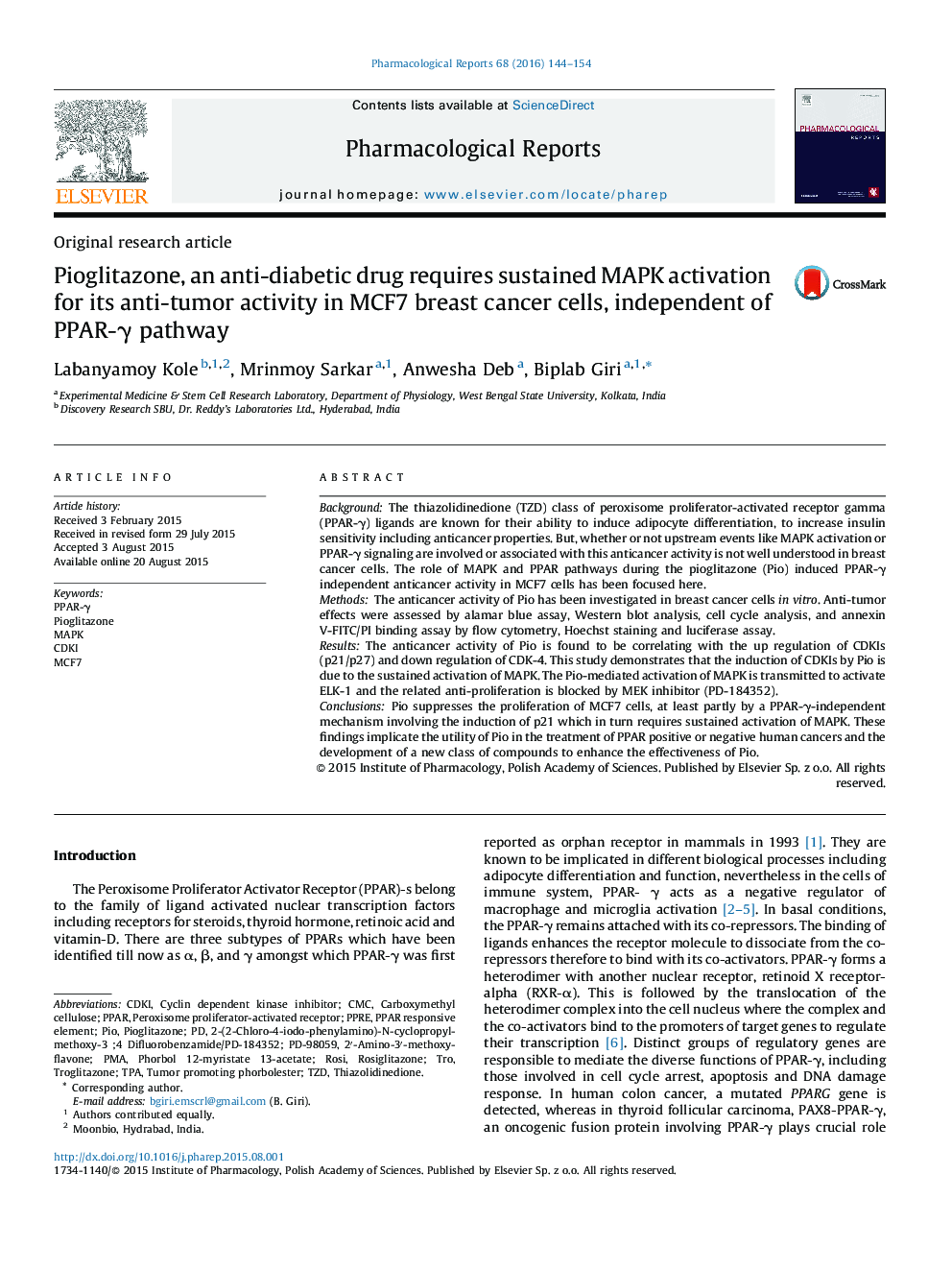| Article ID | Journal | Published Year | Pages | File Type |
|---|---|---|---|---|
| 2010413 | Pharmacological Reports | 2016 | 11 Pages |
BackgroundThe thiazolidinedione (TZD) class of peroxisome proliferator-activated receptor gamma (PPAR-γ) ligands are known for their ability to induce adipocyte differentiation, to increase insulin sensitivity including anticancer properties. But, whether or not upstream events like MAPK activation or PPAR-γ signaling are involved or associated with this anticancer activity is not well understood in breast cancer cells. The role of MAPK and PPAR pathways during the pioglitazone (Pio) induced PPAR-γ independent anticancer activity in MCF7 cells has been focused here.MethodsThe anticancer activity of Pio has been investigated in breast cancer cells in vitro. Anti-tumor effects were assessed by alamar blue assay, Western blot analysis, cell cycle analysis, and annexin V-FITC/PI binding assay by flow cytometry, Hoechst staining and luciferase assay.ResultsThe anticancer activity of Pio is found to be correlating with the up regulation of CDKIs (p21/p27) and down regulation of CDK-4. This study demonstrates that the induction of CDKIs by Pio is due to the sustained activation of MAPK. The Pio-mediated activation of MAPK is transmitted to activate ELK-1 and the related anti-proliferation is blocked by MEK inhibitor (PD-184352).ConclusionsPio suppresses the proliferation of MCF7 cells, at least partly by a PPAR-γ-independent mechanism involving the induction of p21 which in turn requires sustained activation of MAPK. These findings implicate the utility of Pio in the treatment of PPAR positive or negative human cancers and the development of a new class of compounds to enhance the effectiveness of Pio.
